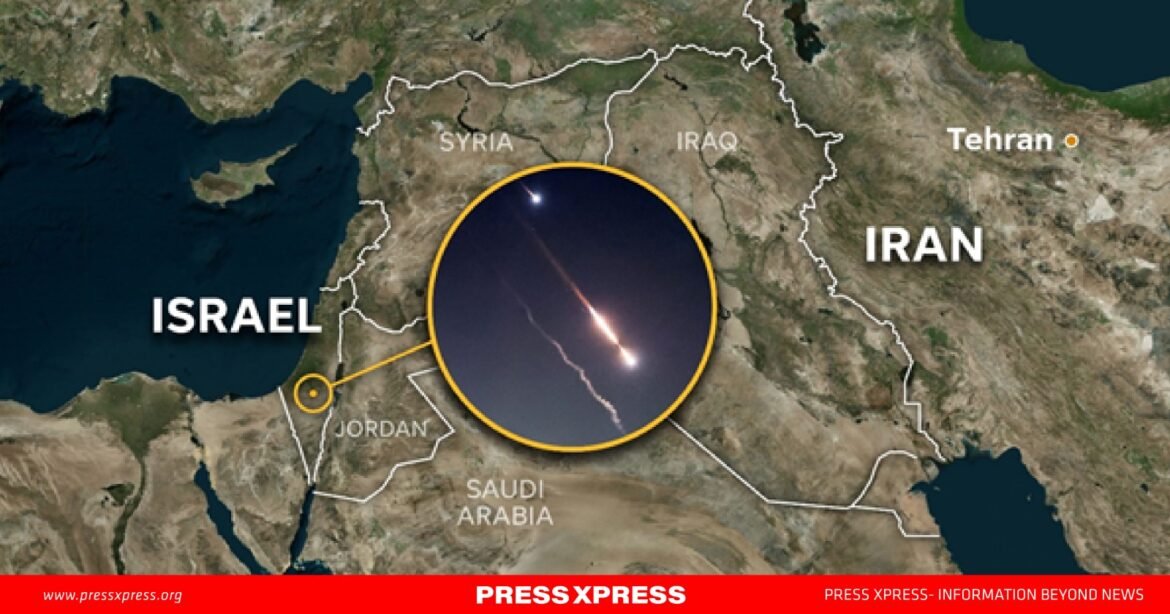In a decisive and powerful military response, Iran launched a series of missile strikes against Israel, seeking retaliation for the deaths of Hezbollah chief Hassan Nasrallah, Hamas political leader Ismail Haniyeh, and IRGC commander Abbas Nilforoshan. This marked the second major missile offensive by Tehran this year, heightening fears of a wider regional conflict as both nations escalate their rhetoric and exchange threats in the aftermath.
Israeli military sources revealed that Iran launched around 180 missiles in its latest offensive, exceeding the 140 missiles fired in the April attack. Despite Israel’s defense systems intercepting the majority of the missiles, some still managed to strike key military installations, schools, and public spaces, including restaurants. Iran’s Revolutionary Guard Corps (IRGC) claimed that 90% of their projectiles hit their intended targets, stating that they used hypersonic missiles for the first time in this assault.
The IRGC further reported that three Israeli military bases were directly struck, although the full extent of the damage is still under evaluation. In the West Bank city of Jericho, missile debris tragically claimed the life of a civilian. Israeli authorities noted that while only two individuals sustained shrapnel injuries, the psychological and political ramifications of the attack are significant.

Reasons Behind the Attack
Iran’s IRGC has framed the missile strikes as a retaliatory response to a series of targeted assassinations by Israeli forces. Most notably, the recent assassination of Hezbollah chief Hassan Nasrallah and IRGC commander Abbas Nilforoshan in Beirut on September 27. Additionally, Tehran has pointed to the killing of Hamas political leader Ismail Haniyeh in July, attributing these actions to Israel, though the Israeli government has not confirmed its involvement.
A senior Iranian official revealed that the missile attack was directly authorized by Iran’s Supreme Leader, Ayatollah Ali Khamenei, indicating the high-level strategic intent behind the operation. Tehran has long denied Israel’s right to exist and has historically supported proxy groups such as Hezbollah and Hamas, which operate against Israeli interests. In contrast, Israel views Iran as a looming existential threat and has conducted covert operations against Tehran to curb its influence and capabilities in the region.
Effectiveness of Israel’s Defense Systems
In response to the missile barrage, Israel activated its layered defense systems. The Iron Dome, designed for short-range rocket interceptions, was used to intercept numerous missiles. Meanwhile, David’s Sling and Arrow 2 and 3 systems were deployed to counter medium- and long-range projectiles. Despite the success of these systems, their limitations were exposed, with several missiles slipping through, causing damage in key areas.
Israel’s defense capabilities have been tested repeatedly in recent years, and the scale and sophistication of this attack highlight the increasing challenges it faces in maintaining a shield against more advanced weaponry, such as the hypersonic missiles reportedly used by Iran.
International Reactions and Israel’s Allies
The international community responded swiftly to the attack, with Israeli allies rallying behind the country. U.S. President Joe Biden reaffirmed his administration’s steadfast support for Israel, labeling the Iranian attack as “defeated and ineffective.” In a significant show of force, the U.S. Navy and Air Force were involved in intercepting several Iranian missiles headed for Israeli territory, and U.S. Defense Secretary Lloyd Austin confirmed successful interceptions over the region.
The U.K. also demonstrated military support, with British fighter jets aiding Israeli defenses. U.K. Prime Minister Sir Keir Starmer issued a firm statement defending Israel’s right to respond, emphasizing the need for de-escalation while holding Iran accountable. France and Japan echoed calls for calm, condemning Iran’s actions and urging restraint from all sides.
What Could Happen Next?
Israeli Prime Minister Benjamin Netanyahu has made it clear that Tehran will face consequences for this attack. In a stern warning, Netanyahu stated that Iran had made a “big mistake” and would “pay for it.” Israel Defense Forces (IDF) spokesperson Daniel Haggari indicated that Israeli military operations would proceed at a time and place of Israel’s choosing.
Iran’s IRGC, however, has responded with equal defiance, warning that any Israeli counter strike would be met with an even more devastating response from Tehran. This tit-for-tat rhetoric raises the possibility of a prolonged cycle of military confrontations in the region, particularly if Iran continues to target Israel and its interests. In the immediate aftermath of the missile strikes, Israeli forces conducted retaliatory airstrikes in Beirut, targeting Hezbollah positions. Residents in southern Beirut, a Hezbollah stronghold, have been urged to evacuate, signaling the potential for further military actions. With tensions high, both sides appear poised for further conflict, although diplomatic channels remain open.
Conclusion
Iran’s recent missile strike marks a significant escalation in its conflict with Israel, increasing the likelihood of broader regional instability. As Israel weighs its response, the potential for widespread unrest becomes more palpable. Though Israel’s defense systems are highly advanced, the growing precision and range of Iranian missiles present a mounting challenge. While the U.S. and U.K. have reiterated their support for Israel, the true test lies in the international community’s capacity to manage the delicate balance of diplomacy and prevent a deeper crisis. Both nations now face a precarious future as the conflict edges into a new and dangerous phase.


